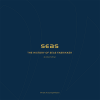Devotional Literature in South Asia
This volume addresses research topics within the field of Bhakti literature, the devotional poetry and other compositions of devotional character in the earlier literature of the modern South Asian languages. Its papers range from the roots of the Bhakti tradition in the early history of Krsna to its modern adaptations in nineteenth- and twentieth-century culture. Geographically, they span Bengal to Sind, Panjab to Maharashtra. Contemporary study of the modern Indian languages has broadened the scope of scholarship to consider today’s Hindu attitudes, and those of a mixed society, against the background of ancient culture. Here, materials in six modern Asian languages are discussed: Bengali, Gujarati, Hindi in its main literary forms, Marathi, Panjabi and Sindhi; with assessment also of material in Sanskrit, Arabic and Chinese. In addition to studies of literary (and orally transmitted) works in the Krsna or Rama traditions, and of Sufi compositions and their interpretation, there are papers on the early history of sacred sites, the emergence of the religion of Rama, later religious formulations throughout the subcontinent, and the interaction of the Islamic and the Hindu.
ContentsList of conference members; Preface; List of abbreviations; Part I. Sacred Places and Sites: 1. Govardhan, the Eater hill Charlotte Vaudeville; 2. The Manbhaus’ seat on Ramtek Hill Hans Bakker; Part II. Formulation and Transmission of Religious Attitudes: 3. Singers\' repertoires in western India Winand M. Callewaert; 4. An oral theology: Dādūpanthī homilies Monika Thiel-Horstmann; 5. Some aspects of the development of bhakti traditions, with especial reference to the Hindi poems attributed to Rāmānand Enzo Turbiani; 6. The Hindu model of social organisation and the bhakti movement: the example of Vallabha’s sampradāya Maya Burger; Part III. Interaction Between Islamic and Indian Religious Attitudes: 7. Sūfī influence in the Ekanāthī-bhāgavat: some observations on the text and its historical context H. van Skyhawk; 8. How a Muslim looks at Hindu bhakti Peter Gaeffke; 9. Muslim devotional literature in Gujarati: Islam and bhakti Françoise Mallison; 10. The Ismaili gināns as devotional literature Ali S. Asani; Part IV. Literary and Religious Traditions in Maharashtra: 11. A grammar of bhakti: Pañcavārtika V. D. Kulkarni; 12. Authorship and redactorship of the Jñāndev Gāthā Catharina Kiehnle; 13. Mātāpitrbhakti: some aspects of the development of the Pundalīka legend in Marathi literature Erik Reenberg Sand; 14. Tukārām: the making of a saint S. G. Tulpule; 15. Sadguru and the Holy Spirit Christopher Shelke SJ; 16. Special features of the Vārkarī cult as regards sādhanā G. Morje; Part V. Some Particular Expressions of the Sūfī Presence in North India: 17. The text of Alakh Bānī S. C. R. Weightman; 18. Kutuban’s Miragāvatī: its content and interpretation S. M. Pandey; 19. Krsnaite and Nāth elements in the poetry of the eighteenth-century Panjabi Sūfī Bullhe Śāh Denis Matringe; Part VI. Some Topics in the Krsna Poetry of North India: 20. Three-three-two versus four-by-four: metrical frames for the padas of Sūrdās K. E. Bryant; 21. Creative enumeration in the vinaya poetry of Sūrdās John Stratton Hawley; 22. The padas attributed to Nanddās R. S. McGregor; 23. Synoptic and sectarian bhakti in the poetry of Dhruvdās Rupert Snell; Part VII. Discussion of the Rāma Tradition in North and North-East India: 24. Taranisena: a parochialised devotional motif W. L. Smith; 25. Tulsīdās and Confucius Jin Dinghan; Part VIII. Modernisation in the Nineteenth and Twentieth Centuries: 26. Hariścandra of Banaras and the reassessment of Vaisnava bhakti in the late nineteenth century Vasudha Dalmia-Lüderitz; 27. A reinterpretation of bhakti theology: from the Pustimārg to the Brahma Kumaris R. K. Barz; Index.
- Forlag: Cambridge University Press
- Utgivelsesår: 1992
- Kategori: Teori
- Lagerstatus: Ikke på lagerVarsle meg når denne kommer på lager
- Antall sider: 338
- ISBN: 9780521413114
- Innbinding: Innbundet











